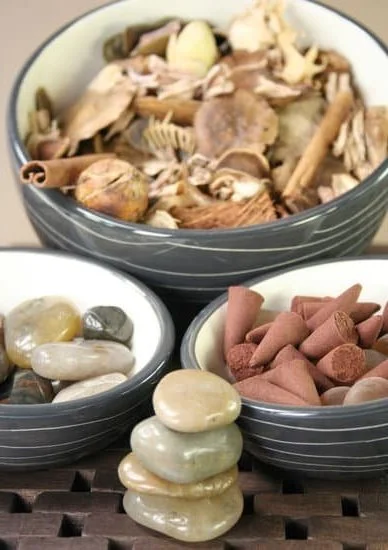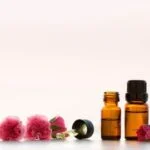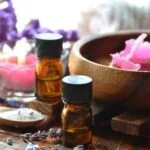Aromatherapy has long been hailed for its potential to ease stress, anxiety, and even medical conditions. But can it really affect your hormones? In this article, we will delve into the world of aromatherapy and hormones to understand how essential oils may have an impact on our hormonal balance. From the science behind aromatherapy to the role of hormones in the body, we will explore the connection between these two seemingly unrelated subjects.
Aromatherapy is often used as a natural remedy for various ailments, but how exactly do essential oils interact with our bodies? Understanding the science behind aromatherapy is crucial in determining its potential effects on our hormones.
Similarly, having a comprehensive overview of the role of hormones in the body will provide a solid foundation for examining the connection between aromatherapy and hormones. By delving into these basics, we can begin to uncover the potential effects that aromatherapy may have on our hormonal balance.
As we continue to explore this topic, we will also examine specific research that explores the connection between aromatherapy and hormones. With a focus on stress hormones such as cortisol and mood-regulating hormones like serotonin and dopamine, we will investigate how essential oils may affect hormone levels.
Additionally, we will look at how aromatherapy may be utilized to promote hormonal balance and alleviate symptoms related to menstrual hormones. Join us as we uncover the potential impact of aromatherapy on our hormonal health.
The Science Behind Aromatherapy
Aromatherapy works by stimulating smell receptors in the nose, which then send messages through the nervous system to the limbic system – the part of the brain that controls emotions. This response can impact physical, emotional, and mental health. But how does aromatherapy affect your hormones?
Research has shown that certain essential oils used in aromatherapy have the ability to interact with hormones in the body. For example, a study published in Evidence-Based Complementary and Alternative Medicine found that inhaling lavender essential oil increased levels of serotonin (a mood-regulating hormone) and reduced levels of cortisol (a stress hormone) in healthy adults. This suggests that aromatherapy can have a direct impact on hormone levels.
In addition to affecting stress and mood-regulating hormones, some essential oils used in aromatherapy have also been found to influence menstrual hormones. A study published in the Journal of Obstetrics and Gynecology Research discovered that inhaling clary sage essential oil reduced menstrual pain in women. This indicates that aromatherapy can be beneficial for alleviating symptoms associated with hormonal imbalances.
| Aromatherapy and Hormones | Impact |
|---|---|
| Aromatherapy affects stress hormones such as cortisol | Reduces cortisol levels and increases serotonin levels |
| Aromatherapy influences menstrual hormones | Can alleviate symptoms like menstrual pain |
The Role of Hormones in the Body
Hormones play a crucial role in regulating various bodily functions, including metabolism, growth and development, mood, and reproduction. These chemical messengers are produced by the endocrine glands and travel through the bloodstream to their target organs and tissues, where they exert their effects.
Hormones are involved in a wide range of processes, from controlling hunger and satiety to influencing stress levels and emotional responses. Imbalances or fluctuations in hormone levels can lead to various health issues, such as weight gain, fatigue, mood swings, and reproductive problems.
The endocrine system consists of several glands that produce hormones, including the thyroid gland, adrenal glands, pancreas, pituitary gland, pineal gland, and the ovaries and testes. Each gland produces specific hormones that have distinct functions in the body. For example, the adrenal glands secrete cortisol and adrenaline to help the body respond to stress, while the thyroid gland produces hormones that regulate metabolism.
In addition to their physiological effects, hormones also play a significant role in regulating emotions and behavior. For example, serotonin and dopamine are neurotransmitters known as “feel-good” hormones because they regulate mood and pleasure. Imbalances in these neurotransmitters can lead to mood disorders such as depression and anxiety. Given the critical role of hormones in maintaining overall health and well-being, understanding how aromatherapy affects hormone levels can provide valuable insights into potential natural remedies for hormonal imbalances.
The Connection Between Aromatherapy and Hormones
Aromatherapy, as the use of essential oils to enhance physical and emotional well-being, has gained popularity in recent years. But does aromatherapy affect your hormones? Research suggests that it does indeed have an impact on hormone levels in the body. Understanding this connection is crucial for harnessing the potential benefits of aromatherapy for hormonal balance.
Research has shown that essential oils used in aromatherapy can interact with the body’s endocrine system, which is responsible for producing and regulating hormones. The limbic system in the brain, which plays a role in emotions and behavior, is also involved in this process. When essential oils are inhaled or applied to the skin, they can potentially influence hormone production and release.
To further explore the connection between aromatherapy and hormones, let’s consider some of the key findings from research studies:
- A study published in the International Journal of Neuroscience found that inhaling lavender essential oil led to decreased levels of cortisol, a stress hormone, in a group of healthy women.
- Another study published in the journal Forschende Komplementärmedizin reported that inhaling a blend of bergamot and lavender essential oils over a 15-minute period resulted in increased levels of serotonin, a neurotransmitter that contributes to feelings of well-being and happiness.
- Research has also indicated that certain essential oils may have potential benefits for hormonal balance during menstruation. For example, clary sage oil has been studied for its potential to reduce menstrual pain and discomfort.
These findings suggest that aromatherapy can have tangible effects on hormone levels in the body. By understanding how different essential oils interact with hormones, we can begin to leverage these effects for promoting overall hormonal balance and well-being. Further research is needed to fully understand the mechanisms behind these effects and to identify specific recommendations for using aromatherapy as a tool for hormone regulation.
Aromatherapy and Stress Hormones
Aromatherapy has gained significant popularity in recent years as a complementary therapy for managing stress, anxiety, and other health conditions. But how does aromatherapy affect your hormones, particularly stress hormones like cortisol?
Cortisol is often referred to as the “stress hormone” because it is released in response to stress and low blood-glucose concentration. Research has shown that inhaling certain essential oils can have a calming effect on the body, helping to reduce cortisol levels and promote relaxation. For example, studies have found that inhaling lavender essential oil can lower cortisol levels and reduce perceived stress in participants.
Additionally, other essential oils such as bergamot, chamomile, and rose have also been found to have stress-reducing properties by positively impacting cortisol levels. Aromatherapy works through the olfactory system, stimulating the brain to release neurotransmitters that promote feelings of calmness and reduce stress hormone production.
| Aromatherapy | Cortisol Levels |
|---|---|
| Inhaling Lavender Oil | Lowers cortisol levels |
| Bergamot, Chamomile, Rose Oils | Reduces perceived stress and impacts cortisol levels positively |
Aromatherapy and Mood-Regulating Hormones
Aromatherapy has gained popularity for its potential effects on mood-regulating hormones, such as serotonin and dopamine. Essential oils have been used for centuries to promote relaxation and improve mood, but how exactly do they impact these important hormones?
How Aromatherapy Interacts With Serotonin
Serotonin is a neurotransmitter that plays a key role in regulating mood, sleep, appetite, and pain. Research suggests that certain essential oils can impact serotonin levels in the brain. For example, the inhalation of lavender essential oil has been linked to increases in serotonin production, leading to feelings of calm and relaxation.
The Impact of Aromatherapy on Dopamine Levels
Dopamine is another crucial neurotransmitter that is involved in pleasure, motivation, and reward. Some essential oils have been found to stimulate the production of dopamine in the brain, leading to increased feelings of happiness and satisfaction. For instance, the scent of rose oil has been shown to increase dopamine levels, promoting a sense of well-being.
Using Aromatherapy to Improve Mood
Given its potential impact on serotonin and dopamine levels, aromatherapy can be a valuable tool for improving mood and emotional well-being. Whether through diffusing essential oils at home or using them in massage therapy, incorporating aromatherapy into daily routines may help regulate mood-regulating hormones and promote overall mental wellness.
By better understanding how aromatherapy affects serotonin and dopamine levels in the body, individuals can harness the power of essential oils to improve their emotional health. Ongoing research into the specific mechanisms behind these effects will further advance our understanding of the potential benefits of aromatherapy for hormone regulation and overall well-being.
Aromatherapy for Hormonal Balance
Aromatherapy has been used for centuries as a natural way to achieve hormonal balance and regulate hormone levels in the body. Essential oils are known for their powerful therapeutic effects, and research has shown that certain oils can have a direct impact on hormone production and regulation. Here is a closer look at how aromatherapy can be used to promote hormonal balance:
- Lavender Oil: Known for its calming effects, lavender oil has been shown to reduce stress and anxiety, which can help regulate cortisol levels. Inhaling lavender oil or using it in a diffuser may help lower cortisol levels in the body, promoting a more balanced hormonal state.
- Clary Sage Oil: This essential oil is commonly used to alleviate symptoms of PMS and menstrual cramps. Clary sage oil is believed to have estrogen-like properties that can help regulate menstrual hormones and provide relief from hormonal imbalances during the menstrual cycle.
- Rose Oil: With its gentle floral scent, rose oil is often used to uplift mood and promote feelings of happiness. Research suggests that inhaling rose oil may increase serotonin and dopamine levels, which could potentially have a positive impact on mood-regulating hormones.
Incorporating aromatherapy into your daily routine through methods such as inhalation, topical application, or aromatherapy massage may offer natural support for hormonal balance. It is important to note that while essential oils show promise in regulating hormone levels, individual responses may vary. Consult with a qualified healthcare professional before using aromatherapy as a treatment for hormone-related concerns.
Aromatherapy and Menstrual Hormones
Aromatherapy has long been used as a natural remedy for various health concerns, including hormonal imbalances. One area where aromatherapy shows promise is in alleviating symptoms of premenstrual syndrome (PMS).
PMS is a condition that affects many women in the days leading up to their menstrual cycle, causing symptoms such as mood swings, bloating, irritability, and headaches. Research suggests that certain essential oils used in aromatherapy may help to alleviate these symptoms and promote a sense of well-being during this time of hormonal fluctuation.
How Aromatherapy Works for PMS
Many essential oils used in aromatherapy have been found to have properties that can help balance hormones and reduce PMS symptoms. Oils such as lavender, clary sage, and chamomile have been shown to have calming effects on the body and mind, which can be particularly beneficial for managing the emotional symptoms of PMS. Additionally, certain essential oils have anti-inflammatory and analgesic properties that can help relieve physical discomfort associated with PMS, such as cramps and headaches.
Research on Aromatherapy for PMS
Several studies have investigated the effects of aromatherapy on PMS symptoms with promising results. One study published in the Journal of Obstetrics and Gynaecology Research found that inhaling a blend of lavender and rose essential oils significantly reduced both physical and psychological symptoms of PMS in participants. Another study published in Evidence-Based Complementary and Alternative Medicine reported that women who received aromatherapy massage experienced a significant reduction in PMS symptoms compared to those who did not receive the treatment.
Using Aromatherapy for PMS Relief
To experience the potential benefits of aromatherapy for alleviating PMS symptoms, it is recommended to use essential oils through methods such as diffusing them into the air, adding them to a warm bath, or diluting them with a carrier oil for topical application. Creating a calming environment with soothing scents during the days leading up to menstruation can provide an opportunity for relaxation and stress relief, which may help mitigate the effects of hormonal fluctuations associated with PMS.
Conclusion
In conclusion, the research on the potential effects of aromatherapy on hormones is still ongoing, but there is growing evidence to suggest that essential oils can indeed have an impact on hormone levels in the body. The interaction between aromatherapy and hormones is complex and multi-faceted, with different essential oils affecting different hormones in various ways.
Studies have shown that certain essential oils can help regulate stress hormones such as cortisol, as well as mood-regulating hormones like serotonin and dopamine.
Furthermore, aromatherapy has been found to be beneficial for hormonal balance, helping to regulate hormone levels in the body. This can be particularly helpful for women dealing with menstrual hormone fluctuations and PMS symptoms. By using specific essential oils, individuals may be able to alleviate some of the discomfort associated with hormonal imbalances.
While the existing research provides promising insights into how aromatherapy affects hormones, further studies are needed to fully understand the extent of its impact. It is recommended that more research be conducted to explore the specific mechanisms by which essential oils interact with hormones, as well as to identify which oils are most effective for targeting different hormonal issues.
With continued investigation, we can gain a deeper understanding of how aromatherapy can be utilized to support hormonal health and overall well-being.
Frequently Asked Questions
Can Essential Oils Cause Hormonal Imbalance?
Some essential oils have the potential to cause hormonal imbalance in certain individuals. Oils like lavender and tea tree have been linked to estrogen-related effects, so it’s important to use them cautiously.
Are There Any Negative Effects to Aromatherapy?
While aromatherapy is generally safe, there can be negative effects if not used properly. Some people may experience allergic reactions, skin irritation, or respiratory issues with certain essential oils. It’s important to always dilute oils and use them as directed.
Who Should Avoid Aromatherapy?
Individuals with certain health conditions, such as asthma or allergies, should avoid aromatherapy or use it with caution. Pregnant women and young children should also consult with a healthcare professional before using essential oils for aromatherapy to ensure safety.

Are you looking for a natural way to improve your health and wellbeing?
If so, aromatherapy may be the answer for you.





